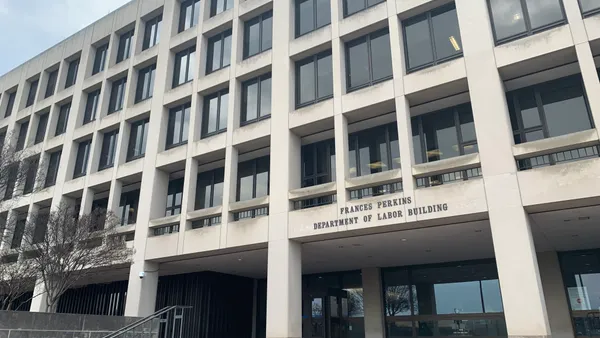Dive Brief:
- Employers who require workers to be part of a wellness program if they want to have coverage with the company’s health plan got a legal boost recently from the Western District of Wisconsin.
- In the case, the Western District court ruled that an employer, Flambeau Inc., a plastics manufacturer, had legal right to deny an employee access to its healthcare plan when the worker chose to opt out of the wellness program.
- In year one, the employee participated in the dual stage wellness program (a health risk assessment and biometric test included) in exchange for a $600 credit towards their healthcare benefit costs. The next year, the $600 credit was changed into a punitive incentive, as workers who wanted healthcare coverage now were required to partake of the two-part wellness program.
Dive Insight:
The employee never completed the HRA or biometric test and Flambeau dropped his coverage. He then complained to his union and filed grievances with the Department of Labor and the EEOC. The employer and employee reconciled, but the EEOC still pushed ahead with its litigation.
Flambeau claimed the HRA and biometric tests were part of the Americans with Disabilities Act's "safe harbor" provision and District Judge Barbara B. Crabb, who wrote the court’s majority opinion, agreed. The court found that the employer indeed was protected by the ADA's safe harbor language.
As evidence, the court singled out the employer's action of giving adequate notice of the wellness program requirement, and both the HRA and biometric screening happened concurrent with open enrollment. Finally, the Flambeau plan’s summary plan description (SPD) clearly spelled out that healthcare plan members might have additional enrollment requirements in addition to those named in the SPD.
The article points out that an employer who follows Flambreau's strategy must also use collected data as delineaed by the ADA’s safe harbor, which is data that is basically aggregate and not specific to any single employee. A final bit of advice: when employers offer the "carrot" of a cash incentive for voluntary participation and suddenly move to more of a "stick" approach, there may be some hiccups during the next enrollment period. So prepare properly.














